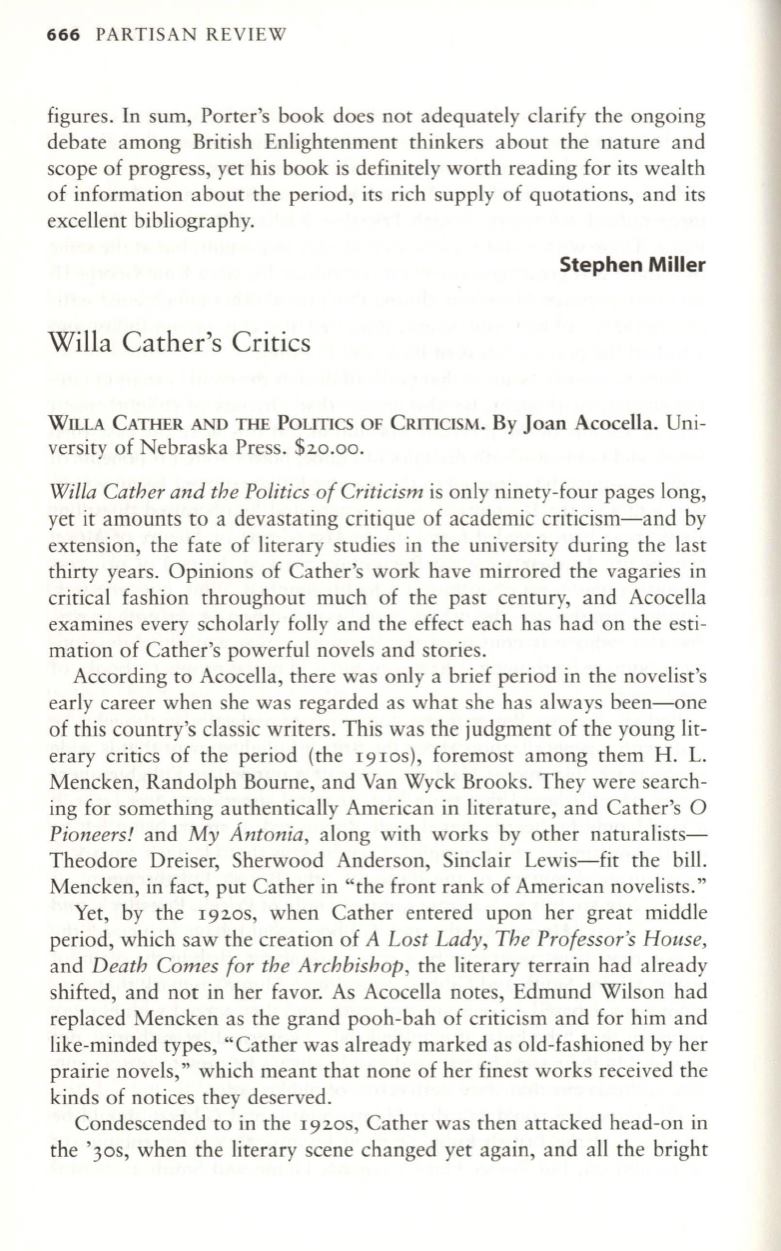
666
PARTISAN REVIEW
figures . In sum, Porter's book does not adequately clarify the ongoing
debate among British Enlightenment thinkers about the nature and
scope of progress, yet his book is definitely worth reading for its wealth
of information about the period, its rich supply of quotations, and its
excellent bibliography.
Stephen Miller
Willa Cather's Critics
WILLA CATHER
AND
THE POLITICS OF CRITICISM. By Joan Acocella. Uni–
versity of Nebraska Press.
$20.00.
Willa Cather and the Politics of Criticism
is only ninety-four pages long,
yet it amounts to a devastating critique of academic criticism-and by
extension, the fate of literary studies in the university during the last
thirty years. Opinions of Cather's work have mirrored the vagaries in
critical fashion throughout much of the past century, and Acocella
examines every scholarly folly and the effect each has had on the esti–
mation of Cather's powerful novels and stories.
According
to
Acocella, there was only a brief period in the novelist's
early career when she was regarded as what she has always been-one
of this country's classic writers. This was the judgment of the young lit–
erary critics of the period (the
1910S),
foremost among them H.
L.
Mencken, Randolph Bourne, and Van Wyck Brooks. They were search–
ing for something authentically American in literature, and Cather's 0
Pioneers!
and
My Antonia,
along with works by other naturalists–
Theodore Dreiser, Sherwood Anderson, Sinclair Lewis-fit the bill.
Mencken, in fact, put Cather in "the front rank of American novelists."
Yet, by the
1920S,
when Cather entered upon her great middle
period, which saw the creation of
A Lost Lady, The Professor's House,
and
Death Comes for the Archbishop,
the literary terrain had already
shifted, and not in her favor. As Acocella notes, Edmund Wilson had
replaced Mencken as the grand pooh-bah of criticism and for him and
like-minded types, "Cather was already marked as o ld-fashioned by her
prairie novels," which meant that none of her finest works received the
kinds of notices they deserved.
Condescended to in the
1920S,
Cather was then attacked head-on in
the
'30S,
when the literary scene changed yet again, and all the bright


